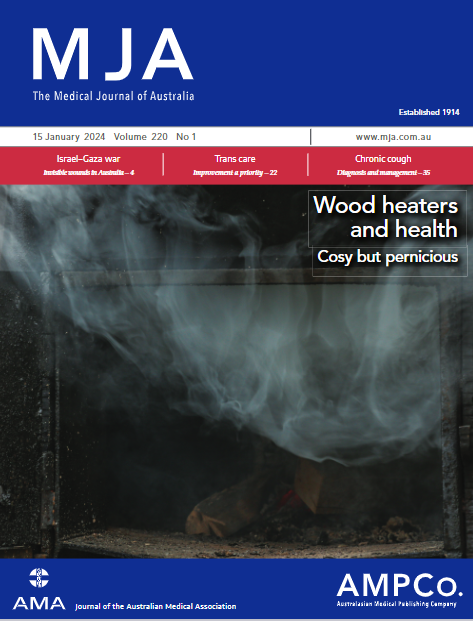An Aboriginal women-led approach to design a maternal and child health model when cardiometabolic complications are experienced in pregnancy in South Australia
Abstract
Objective
To develop a culturally responsive maternal and child health model, centred on Aboriginal and Torres Strait Islander women's knowledge of health, wellbeing and expressed health priorities, to address gaps in care for those who experience cardiometabolic complications in pregnancy.
Design
Health services and systems co-design.
Setting
Health services in South Australia providing maternal and child primary, acute and chronic disease management care.
Participants
Nineteen Aboriginal women from urban, regional and remote areas of South Australia participated in 2024, with most having personal experience of cardiometabolic complications in pregnancy and some contributing professional experience.
Main outcome measure
Development of a culturally responsive, evidence-based model of care to support Aboriginal women with cardiometabolic complications in pregnancy.
Results
Through a collaborative approach and an iterative co-design process, participants shared lived experiences, identified systemic issues and developed solutions to address gaps in maternal and child health care. Culturally safe spaces enabled deep reflection, open dialogue and collective decision making. With this, we developed a model of care that included a vision statement, guiding principles, a conceptual framework and 18 priority areas. In addition, eight health system enablers were identified to support implementation.
Conclusion
This project demonstrates the value of Aboriginal women's leadership in shaping health systems. This process highlights the value of culturally grounded, community-led co-design approaches to health service and system reform. For health systems and service providers and managers, this is an opportunity to foster meaningful change by listening to and acting on the voices of Aboriginal women. In doing so, they will meet their responsibility to address inequities. Researchers and health organisations must do more than amplify these voices; rather, they must listen, act and ensure that systems respond to what women say they need. This is a pivotal moment to drive systemic change for equitable and culturally safe maternal and child health care.


 求助内容:
求助内容: 应助结果提醒方式:
应助结果提醒方式:


